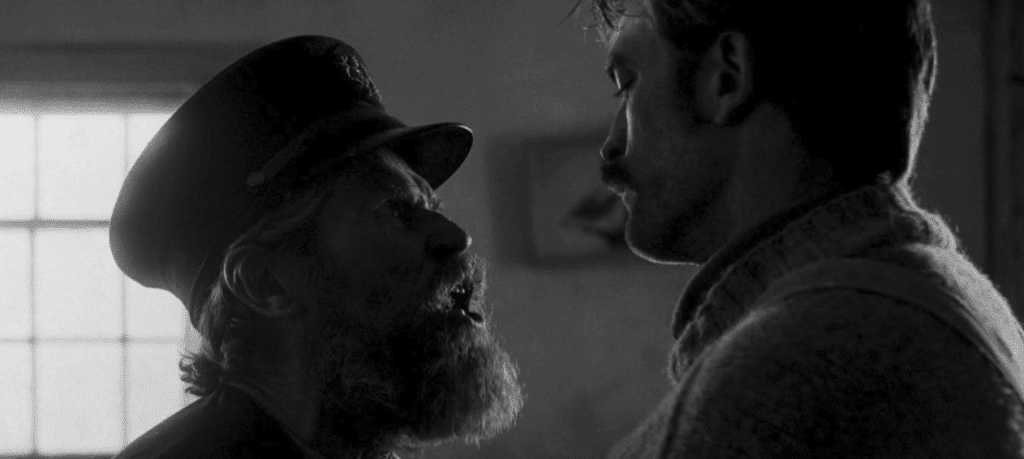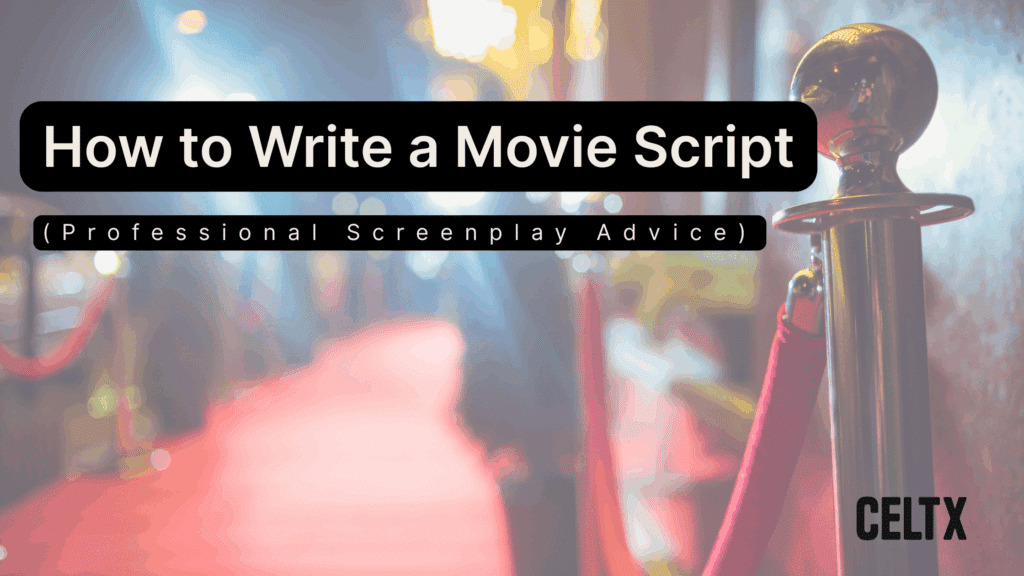
Let’s be honest, screenwriting can feel like a mysterious art form when you’re starting out. You’ve got ideas, maybe even a few scenes scribbled down, but figuring out how to shape them into a full-blown screenplay? That’s a whole other beast.
One of the best ways to learn, and I mean really learn, is by reading scripts. Not just glancing at them, but diving in, dissecting them, and seeing how the pros do it.
The good news? You don’t need to fork out a ton of money or enroll in a fancy course to get access to great screenplays. There are loads of free resources online that offer legal access to scripts from iconic films, indie gems, and everything in between.
And in today’s blog, we’ll explore why reading scripts is not just helpful but a game changer! We’ll also look at where to find them, why you should be reading movie scripts online, how to analyze them without getting overwhelmed, and how to use tools like Celtx to practice. We’ll also share some of our top recommendations by genre, because not all scripts are created equal.
“To make a great film you need three things – the script, the script and the script.” – Alfred Hitchcock
Let’s begin…
Table of Contents
- Why Reading Movie Scripts Matters
- Top Resources: Where to Find Free Movie Scripts
- How to Analyze Free Movie Script for Structure and Pacing
- Recommended Movie Scripts by Genre
- How to Use Celtx to Practice with Movie Scripts
- FAQs
- Conclusion

Why Reading Movie Scripts Matters
If you’re serious about screenwriting, reading scripts isn’t optional but essential. Think of it like learning to cook by tasting dishes from great chefs. You start to notice the seasoning, the structure, the rhythm.
Here’s what reading scripts can teach you:
Formatting Without Fear
Screenwriting has its own language. Reading scripts helps you absorb formatting naturally, without having to memorize rules.
Scene Flow and Pacing
You’ll see how scenes are structured, as well as how they build momentum, shift tone, and keep the audience hooked.
Character Development
Watching characters evolve on the page is a masterclass in emotional storylines.
Dialogue that Sings
You’ll learn what makes dialogue pop, and what makes it fall flat.
Confidence
Seeing how other writers tackle story problems can reassure you that there’s no one ‘right’ way to write.
And let’s be real, sometimes reading a fantastic script just makes you want to write. That spark is worth chasing.
“Everything starts with writing. And then to support your vision, your ideas, your philosophy, your jokes, whatever, you’ve gotta perform them and/or direct them, or sometimes just produce them.” – Mel Brooks
Top Resources: Where to Find Free Movie Scripts
Okay, so where do you actually find these magical scripts? Here are some of our go-to spots which house some of the best script libraries around (all of which are our favorite price: FREE):
IMSDb (Internet Movie Script Database)
A classic! Think of it as the IMDb of screenplays. It’s super easy to browse by genre and includes both shooting scripts and early drafts.
Click here to check out their script database.
Simply Scripts
A treasure trove of movie, TV, radio, and even unproduced scripts, which is great if you want to explore different formats or find hidden gems.
Discover your next favorite script here.
Screenplays for You
Updated regularly, screenplays-for-you.com has a clean layout, curated links, perfect for quick browsing without distractions.

The Script Lab
Thescriptlab.com offers both downloadable scripts and breakdowns (the best of both worlds!). Super helpful if you’re still getting to grips with or want to refresh your screenplay structure knowledge.
Script Slug
A sleek, modern interface, Script Slug offers a wide selection of film and TV scripts. Find award-season screenplays and fan favorites, all in properly formatted PDFs.
Studio Websites
Studios like A24, Focus Features, and Neon often release award-season screenplays. These scripts are gold, all polished, formatted and will often be the final shooting draft.
Reddit and Forums
Subreddits like r/Screenwriting often share links to free scripts. If you do choose to find scripts this way, make sure to double-check the source to make sure it’s legit.
“You don’t learn how to write a screenplay by just reading screenplays and watching movies. It’s about developing the kind of mind that sees and makes drama. You can do this in a kind of holistic way by reading history and theology and psychology, reading great fiction and poetry, and plays. You develop an eye for the structures of everything and look for the patterns that help you become a dramatist.” – Robin Swicord
How to Analyze Free Movie Scripts for Structure and Pacing
Reading is great, but active reading is better. Here are our top tips for how to turn a casual read into a learning experience:
1. Scene Breakdown
As you read through each scene, ask yourself what the purpose of each scene is. Is it moving the plot forward, revealing character, or setting tone?
Every scene in a screenplay should be doing something to advance the story.
2. Character Arcs
Track how the characters change. What choices do they make? What do they want vs. what they need?
3. Dialogue Deep Dive
Is the dialogue natural? Does it reveal something deeper? Make sure to look for subtext (the stuff the characters don’t say).

4. Formatting Fluency
Notice how the action lines are written. Are they punchy? Visual? How are transitions handled?
5. Script vs. Screen
Watch the film after reading the script. What changed? What stayed the same? Why might those choices have been made.
CELTX TOP TIP: Keep a notebook or digital document where you jot down insights, favorite lines, or techniques you want to try in your own work.
Ready to start writing? Check out our movie formatting guide here.
Practice your screenwriting by reading and analyzing free scripts in Celtx.
Start for free today!
Recommended Movie Scripts by Genre
Okay, so it’s time for the good stuff! If you’d love to dig into some great scripts but aren’t sure where to start, here’s our curated list of scripts that are not only well-written but also teach you something unique about the craft.
So, without further ado…
Drama
Manchester by the Sea (2016)
Written and directed by Kenneth Lonergan, Manchester by the Sea is a masterclass in emotional restraint and character-driven storytelling.
Moonlight (2016)
Barry Jenkins’ revered script based on the book In Moonlight Black Boys Look Blue by Tarell Alvin McCraney is sparse, poetic, and layered with meaning.

Comedy
Bridesmaids (2011)
This hilarious and heartfelt script by Annie Mumolo and Kristen Wiig is full of strong character dynamics.

The Grand Budapest Hotel (2014)
A whimsical, fast-paced story written and directed by visionary Wes Anderson. His visually rich movie is still talked about with fondness across the industry.
Thriller
Gone Girl (2014)
Written by the book’s original author, Gillian Flynn, Gone Girl is a twisty, tense story full of unreliable narration.

Nightcrawler (2014)
A chilling character study with razor-sharp pacing, Nightcrawler, crafted by screenwriter Dan Gilroy, is worth digging into.
Horror
Get Out (2017)
Jordan Peele’s ground-breaking script for Get Out is genre-savvy couples with powerful social commentary.
Hereditary (2018)
An atmospheric, disturbing and emotionally raw script all about family from Ari Aster.

Sci-Fi
Ex Machina (2015)
Alex Garland’s screenplay for Ex Machina may be minimalist, but it’s packed with philosophical tension.
Arrival (2016)
Non-linear storytelling done right, thanks to Eric Heisserer’s awesome script.

Indie/Experimental
Lady Bird (2017)
Greta Gerwig’s script for Lady Bird is honest, intimate, and beautifully structured.
The Lighthouse (2019)
Robert and Max Eggers script takes us on a bold, bizarre, and linguistically rich journey as two lighthouse keepers try and keep their sanity.

Struggling to decide which script to read first? Pick a few that speak to your style or genre of choice. Or perhaps you could challenge yourself with something outside your comfort zone!
Bring what you learn from scripts into your own writing with Celtx. Sign up now!
“There are a lot of bad screenplays, so if you write a good screenplay people are going to respond to it.” – Quentin Tarantino
How to Use Celtx to Practice with Free Movie Scripts
If you’re not already using Celtx, then where have you been? It’s a fantastic (and free!) tool for writing and editing screenplays.
Here are four ways you can use our production suite to level up your learning:
1. Import and Tinker
Copy scenes from an existing script into Celtx and play around. Rewrite them, change the setting, or swap character motivations. Have fun and see what you can create! You never know, it could help inspire your next project.
2. Scene Rewrites
Take a scene you love and rewrite it in your own voice. What would you do differently?
3. Breakdowns
Take advantage of our comprehensive set of production tools to break down scenes by props, locations and characters. This is a great way to think like a director and recognize how a script can translate onto the screen.
4. Write Inspired Scenes
After reading a script, write a new scene using similar techniques. Try mimicking tone, pacing, or structure.
But the most important thing is don’t be afraid to experiment!
FAQs About Free Movie Scripts
Yes! As long as you’re using trusted sources like IMSDb, Simply Scripts, or studio websites. Studios often release scripts for educational purposes, especially during awards season.
Absolutely. Reading and analyzing scripts is a common and encouraged practice. You can even rewrite scenes for personal development. Just don’t distribute or claim them as your own!
Focus on structure, character development, pacing, and dialogue. Compare scripts across genres. Use tools like Celtx to experiment and internalize what you learn.
Conclusion
Reading scripts is one of the most underrated ways to grow as a screenwriter. It’s free, it’s accessible, and it’s endlessly inspiring. Whether you’re drawn to gritty dramas, sharp comedies, or surreal horror, there’s a screenplay out there that can teach you something new, and maybe even spark your next idea.
So go ahead: download a free movie script, grab a cup of tea (or coffee, or wine, no judgment!), and start reading. Your future screenplay will thank you.
Focus on your story, not your formatting.
Let Celtx’s Script Editor automatically apply all industry rules while you focus on the story.
Up Next:

How to Write a Movie Script (Professional Screenplay Advice)
Once you’ve explored professional scripts, it’s time to start your own. Learn the essentials of how to write a movie script and put your ideas on the page.
